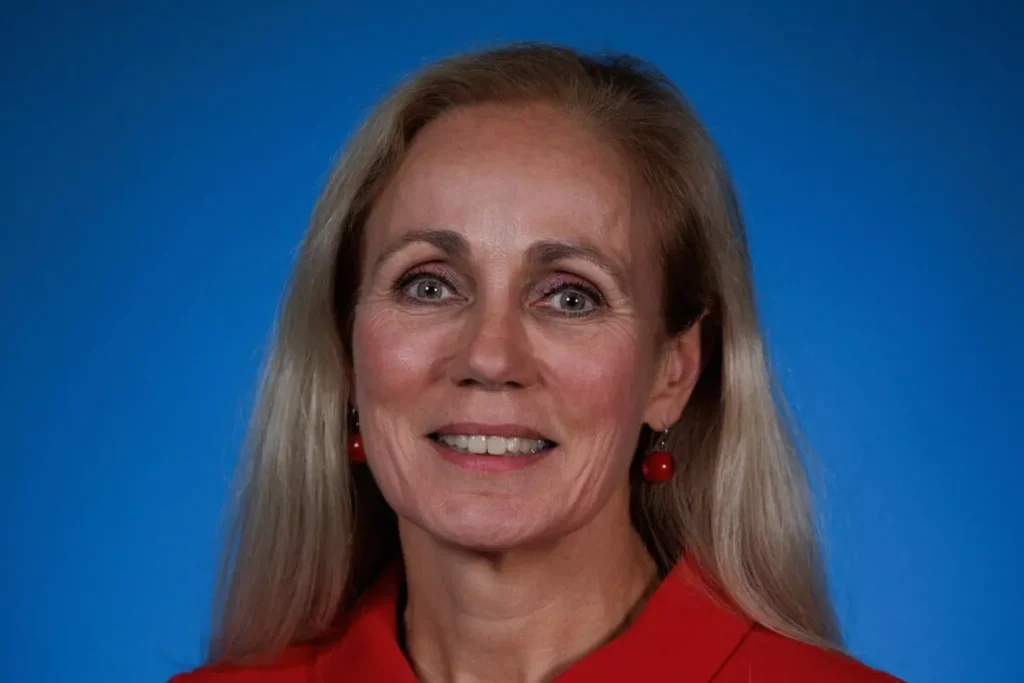UNICEF has called attention to the pressing need for intensified global efforts to safeguard children in times of escalating crises, including conflict, climate change, and economic turbulence.
Speaking in an interview with News Central, Kitty Van der Heijden, the Deputy Executive Director for Partnerships, emphasised the organisation’s mission to ensure that children not only survive but also thrive and realise their rights.
As the guardian of children’s rights, UNICEF focuses on three key areas: survival, development, and the realisation of rights.
“And we are, as UNICEF, the custodian of the rights of the child, the most ratified human rights convention, which basically spells out the right that children have for education, for nutrition, for health, for protection. And this is what we do around the world. And I will say, it’s 2024, it’s a really tough time too,” Van der Heijden said.
She noted that, in 2024, the world faces unprecedented challenges, with an alarming number of conflicts, notably in Ukraine, Syria, and Yemen, along with less publicised crises in places like Myanmar and Haiti. In these tumultuous times, the organisation has remained committed to protecting children, regardless of the circumstances.
“As you know, it’s education, it’s health, it’s nutrition, it’s protection. But currently what we also see is that many of the development gains that we have achieved over decades are being eroded by climate change. And so really working on making people aware of climate change, to children and equipping children for a future that looks very different.
“Perhaps it’s a very difficult period in life for children because of the economic downturn, a part of that due to COVID, a part of that due to death. And so where do young people really find employment? How do we make sure that they don’t just survive and thrive, but that they have a pathway to a life in dignity? And that means that they are skilled to find jobs, from learning to earning. And so that part, too, is an incredibly important part,” Van der Heijden said.
UNICEF stressed the importance of a multi-faceted approach involving collaboration with local and federal governments, private sector partners, and philanthropic organisations to uphold children’s rights and ensure their protection. This includes improving education systems to facilitate school attendance and retention, as well as ensuring that children receive nutritious meals.
Van der Heijden noted that climate change disproportionately affects children, especially those under five, who bear the brunt of related health issues. She called for specific policies within Nigeria’s climate plans to address these vulnerabilities, urging a collective commitment to foster a safer, healthier environment for children.
“Now, every country in the world is making their new climate plans that need to be submitted to the Global Climate Change Convention by March next year. Will the Nigeria climate plan have specific policies for children to make sure that we can equip, for example, community health workers so they detect what heatwaves will affect women, we can diagnose illnesses, climate-related, in newborns, and we can actually protect them much better. So awareness, ambition, and then, of course, the rubber meets the road when it comes to the air of action.
“For action, what we need is the government of Nigeria, federal and local level entities such as ours that understand what it does to children. But we will also need the buy-in from the private sector, what products they make, how they make it, how they take their responsibility to deal with climate change. We need philanthropic institutions.
“This really requires an ecosystem of actors to come together to protect children. Again, they are uniquely vulnerable. It is our generation’s mandate and duty to make sure that we protect children in Nigeria better than we do right now,” Van der Heijden said.
“So invest in children that they survive and they thrive with, that we equip them with the green digital skills that they need to grow Nigeria green and fast, that Nigeria not just on skilling, on nutrition, on health, but all these sectors that children need from when they are conceived until adolescence.
“So across the entire chain, we have collaboration with the government. Of course, we still need to grow faster and further because every year more new children are born, and the challenge doesn’t get any less for climate impact, with insecurity, and with economic downturn in the global economy,” she added.
As global attention shifts to recovery and growth, UNICEF said the organisation remains dedicated to advocating for children, affirming that they are fundamental to the future of society and deserving of a life filled with opportunity and dignity.

